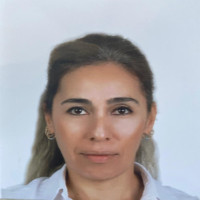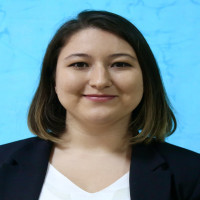Articles
Düzeltme
Issue Reviewers




 0000-0001-5491-771X
0000-0001-5491-771X

 0000-0002-0845-1602
0000-0002-0845-1602



 0000-0001-9932-3659
0000-0001-9932-3659

 0000-0002-3817-1169
0000-0002-3817-1169





Aim & Scope
Artvin Coruh University Journal of International Social Sciences publishes scientific, social and human scientific studies at the local, national and international level to contribute to the knowledge of the social sciences.
Author Guidelines
General Rules
- Studies submitted for publication in the Artvin Çoruh University International Journal of Social Sciences must be prepared in accordance with the article template (Research Article, Review). The type of article (Research, Review, Translation, Book Review, etc.) should be selected and uploaded accordingly.
- A Turkish “Öz” and an English “Abstract” must be included. The Turkish Öz and the Abstract should be at least 150 and at most 200 words and written in a single paragraph. At least 3 to 5 keywords must be provided under the summary.
- At least 3 JEL codes must be included in the study. The JEL code should be written according to the Journal of Economic Literature classification (https://www.aeaweb.org/econlit/jelCodes.php?view=jel).
- The submitted study, including the summary, abstract, citations, references, and appendices, must not exceed 10,000 words (a maximum of 25 pages), and should be uploaded in Word format.
- For studies prepared in Turkish, an Extended Abstract in English, between 750-1000 words, should be added after the conclusion section.
- Since the blind peer-review system is applied in the evaluation process of submissions to our journal, no information about the authors should be included in the file or the file name.
- A similarity report must be uploaded (iThenticate software should be used). The journal accepts studies with a similarity rate of up to 20%, excluding references. Moreover, a study with more than 5% similarity from a single source will not be accepted.
- For studies requiring Ethical Committee Approval, the approval must be obtained from the relevant institutions and mentioned in the article. The Ethics Committee Approval document must also be uploaded to the system.
- In studies requiring ethics committee approval, the methodology section of the article must specify from which institution the approval was obtained, along with the date and decision number of the relevant approval.
- For studies not requiring ethics committee approval, a “Declaration of Exemption from Ethics Committee Approval” must be filled out, signed by all authors, and uploaded to the system in place of the “Ethics Committee Approval” document.
- It is important for authors to adhere to the general writing rules outlined below when submitting their work.
Page Structure, Writing Format, Paragraph Structure, and Line Spacing
- The page size should be A4 (Width: 21 cm and Height: 29.7 cm).
- The page layout should be set with “2.5 cm” margins on all sides (top, bottom, left, and right).
- The main text should be written in “Times New Roman” font, “12 pt” size, with 1.15 line spacing. Paragraphs and headings should have a first-line indent of 1 cm, and paragraphs should be justified. The spacing before and after paragraphs should be 6 pt. Footnotes should be written in 9 pt, and references in 10 pt Times New Roman.
- The Öz and Abstract must not exceed the first page of the article template.
Author Information
- Since the submitted study will be sent to reviewers, the author’s name, surname, and institution information should not be included.
- After receiving approval for publication, before uploading the study again, a footnote should be added next to the author’s full name under the title, specifying their title, institution, email, and ORCID information (written in 9 pt).
Titles (Section Titles, Main and Subtitles)
- The title of the study should be in “Times New Roman” font, “12 pt” size, and bold. The first letter of each word in the title should be capitalized, and the title should be centered on the page.
- Main and subheadings in the study should be in “Times New Roman” font, “12 pt” size, bold, with the first letter of each word capitalized.
- Headings should be aligned to the left with a 1 cm indent and numbered as 1.1, 1.2, 2.1, etc.
- The first letters of the Introduction, Conclusion, and References titles should be capitalized and bold, and they should not be numbered.ould not be numbered. Introduction
Introduction (The first letter of the title is in upper case and bold, spacing before 6 pts, after 6 pts, line spacing 1.15)
1. Main Title (Times New Roman, 12 pt, aligned left, first letters capitalized, bold)
1.1. Subtitle (2nd level heading, Times New Roman, 12 pt, aligned left, first letters capitalized, bold)
1.1.1. Sub-subtitle (3rd level heading, Times New Roman, 12 pt, aligned left, first letters capitalized, bold)
Conclusion
Extended Abstract
Ethics Statement (Times New Roman, 9 pt, single line spacing, 0 pt before and after)
References (References heading in 10 pt Times New Roman, first letter capitalized and bold, not numbered, all references written in 10 pt. References should be arranged alphabetically by the author’s last name, with a hanging indent of 1 cm.)
Examples for Citation (APA 7)
In-Text Citation
In-text citations should follow the format of "author(s)' last name, year of the source, and page number." If citing information from an institution, the institution name is used instead of the author’s name.
Single-author citation: (Berberoğlu, 2023, p. 15).Two-author citation: (Doğan & Uzun, 2020, p. 17).
First citation for a source with three authors: (Engin, Uzun, & Çetin, 2010, p. 9).
Subsequent citation for a source with three authors: (Engin et al., 2010, p. 7).
Citation for a source with more than three authors: (Çelik et al., 2023, p. 15).
Secondary sources: (Özbek, 2020; as cited in Uzun, 2022, p. 11).
Foreign sources with two authors: (Svendsen & Løber, 2020, p. 15).
Institutional Authors
First citation: (The Scientific and Technological Research Council of Turkey [TÜBİTAK], 2013, p. 19).Subsequent citations: (TÜBİTAK, 2013, p. 19).
Preparing the Reference List
All sources used in the work must be cited in the reference list. The references should be listed alphabetically by the authors' last names without distinguishing between journal articles and other types of works. The reference list should be formatted with a hanging indent of 1 cm and typed in Times New Roman, 10 pt, single spacing. The APA 7.0 format should be followed.Journals:
The article title should be written in regular font, capitalizing only the first letter of the first word, followed by a period. The journal name should be written in italics, with the first letter of each word capitalized and followed by a comma. The volume number should be italicized, followed by the issue number in parentheses in regular font.Author Last Name, A. (Year). Title of the article. Journal Name, Volume(Issue), Page range.
Al-Ansari, Y., Altalib, M., & Sardoh, M. (2013). Technology orientation, innovation and business performance: A study of Dubai SMEs. The International Technology Management Review, 3(1), 1-11. https://doi.org/10.1016/0090-2616(90)90061-S
Bass, B. M. (1990). From transactional to transformational leadership: Learning to share the vision. Organizational Dynamics, 18(3), 19-31. https://doi.org/10.1016/0090-2616(90)90061-S
Books:
Author’s last name should be followed by their initials. The book title should be italicized with only the first letter of the title capitalized. The publisher’s name should follow the title, beginning with a capital letter.Author Last Name, A. (Year). Title of the book (Edition). Publisher.
Avolio, B. J., & Bass, B. M. (2002). Developing potential across a full range of leadership: Cases on transactional and transformational leadership. Lawrence Erlbaum Associates.
Ersoy, M. (2019). Katılım bankalarında kontrol (1st ed.). Yalın Yayıncılık.
Edited Books:
Editor Last Name, A. (Ed.). (Year). Title of the book (Edition). Publisher.Hygum, E., & Pedersen, P. M. (Eds.). (2010). Early childhood education: Values and practices in Denmark. Hans Reitzels Forlag.
Book Chapter in Edited Books:
Author Last Name, A. (Year). Title of the chapter. In A. Editor (Ed.), Title of the book (Edition, Pages). Publisher.
Berberoğlu, M. (2022). Kitap bölümünün adı. In E. Pars (Ed.), Kitabın adı (pp. 101-128). Yayınevi.
Translated Books:
Original Author Last Name, A. (Year). Title of the book (Translator's Initials. Translator Last Name, Trans.). Publisher. (Original work published Year).
Yalom, I. D. (1998). Kısa süreli grup terapileri: İlkeler ve teknikler (N. H. Şahin, Trans.). Türk Psikologlar Derneği Yayınları. (Original work published 1983).
Theses:
Author Last Name, A. (Year). Title of the thesis [Unpublished doctoral dissertation]. University.
Berberoğlu, M. (2014). Çin'den yapılan ithalatın Türkiye'deki firmaların performansına etkisi: İSO 1000 araştırması [Unpublished doctoral dissertation]. Karadeniz Teknik Üniversitesi.
Conference Proceedings:
Author Last Name, A. (Year, Month Day). Title of the presentation [Conference presentation]. Conference Name, Location, URL.
Online Sources:
Cossin, D., & Caballero, J. (2013). Transformational leadership: background literature review. IMD. Retrieved from https://www.imd.org/uupload/IMD.WebSite/BoardCenter/Web/213/Literature%20Review_Transformational%20Leadership.pdf on February 22, 2020.Toner, K. (2020, September 24). When Covid-19 hit, he turned his newspaper route into a lifeline for senior citizens. CNN. https://www.cnn.com/2020/06/04/us/coronavirus-newspaper-deliveryman-groceries-senior-citizens-cnnheroes-trnd/index.html.
World Health Organization. (2018, May 24). The top 10 causes of death. https://www.who.int/news-room/fact-sheets/detail/the-top-10-causes-of-death. In-text citation: (World Health Organization, 2018).
Media Sources (Film, Video, Podcast, etc.):
Author/Producer/Artist Last Name, First Initial. (Year). Title of talk/song/episode [Audio or Video]. Website link.Anadol, R. (2020, July). Art in the age of machine intelligence [Video]. TED Conferences. https://www.ted.com/talks/refik_anadol_art_in_the_age_of_machine_intelligence?language=en#t931.
Social Media Sources:
Author's Last Name, First Initial [Username]. (Year, Month Day). First 20 words of post [Description]. Website name. URL.Alper, S. [@SinanAlper_]. (2020, September 2). Indeed, the purpose of statistics and the scientific fields that use them is to predict what has not yet happened [Tweet]. Twitter. https://twitter.com/SinanAlper_/status/1301210933335916547.
Film/Book Reviews:
Reviewer’s Last Name, First Initial. (Year). Review title [Review of the book/film Title by Author's/Director’s Initial, Last Name]. Name of Journal, Volume(No), page range or Newspaper Name or Published Website.Yavaş Bozkurt, A. (2013). Book review [Review of the book Diversity consciousness by R. Bucher]. Sakarya University Journal of Education, 3(3), 137-138. https://dergipark.org.tr/tr/download/article-file/192324.
Fleming, V. (Director). (1939). Gone with the wind [Film]. Selznick International Pictures; Metro-Goldwyn-Mayer.
Dictionaries:
American Psychological Association. (2015). Mood induction. In APA dictionary of psychology (2nd ed., p.667).Turkish Language Association. The concept of Turkish. Turkish Language Association Dictionary. Retrieved from https://sozluk.gov.tr/ on February 20, 2023.
Bilgin, N. (2003). Social psychology dictionary: Concepts and approaches. Bağlam Publishing.
For Other Sources:
Banks Association of Turkey (2007, May). Restructuring program for small and medium-sized enterprises’ debts to the financial sector: Information note.State Planning Organization (DPT) (2000). Climate change special commission report. Eighth five-year development plan, Ankara.
Sudarsanam, S., Sorwar, G., & Marr, B. (2003, October). Valuation of intellectual capital and real option models. PMA Intellectual Capital Symposium.
Yılmaz, B. (2003). Turkey’s competitiveness in the European Union: A Comparison with five candidate countries – Bulgaria, The Czech Republic, Hungary, Poland, Romania and the EU15. Ezoneplus Working Paper No. 12.
NOTE: For more detailed information about other source types, please visit the official APA 7 site: https://apastyle.apa.org/style-grammar-guidelines/references/examples/.
Ethical Principles and Publication Policy
Artvin Coruh University International Journal of Social Sciences (ISSN: 2458-8385) is an academic journal that complies with international standards. The journal has published scientific articles in print and electronic since 2015, and only in electronic platforms with the 2017 December issue.) It shares national and international studies in the fields based on social and human sciences (involving history, sociology, philosophy, literature, philology, geography, sports management, recreation, archeology, art history, law, political science, international relations, economics, business, psychology, fine arts, etc.) with open access logic.
Submitted articles are scanned by a double-blind peer-review method and published electronically with free access. Below are the ethical responsibilities, roles, and duties of the authors, journal editor, reviewers, and publisher. The ethical principles and rules below have been prepared following the "Committee on Publication Ethics - COPE " guidelines (https://publicationethics.org/)."
In addition, knowledge concerning the situations regarded as plagiarism and unethical behaviors was given in Artvin Coruh University International Journal of Social Sciences.
Ethical Responsibilities of Authors
• The articles submitted to Artvin Çoruh University International Journal of Social Sciences are based on social and human sciences; history, sociology, philosophy, literature, philology, geography, sports management, recreation, archeology, art history, law, political science, international relations, economics, business, psychology, and fine arts, etc. There should be original studies in the fields.• All sources employed in articles (authors, online pages, personal interviews, etc.) should be documented accurately and adequately.
• It should be mentioned that the articles sent to the journal were not sent to another journal, and the Copyright Form should be filled out.
• The author(s) should present a plagiarism report concerning their article. If the study needs ethics committee approval, they should accept it from the appropriate units and send it to our journal. Suppose the article is a study that does not demand ethics committee approval. In that case, it should fill in the appropriate form on our journal page and upload this file on the ethics committee approval download page.
• Persons who do not contribute intellectually to the article should not be mentioned as authors.
• Conflicts of interest regarding the submitted article should be reported, and the reason should be clarified.
• Authors may be demanded to submit raw data regarding their work to the editorial board while in the peer review process, in which case the authors are supposed to share their raw data with the editorial board.
• Authors are obliged to hold the data of a published article for five years.
• When authors notice an error in their work, they should declare the editor and the editorial board and cooperate in the correction or withdrawal process.
Ethical Responsibilities of Reviewers
Double-blind refereeing; means keeping the authors confidential from the referees and the referees from the authors to ensure an impartial, objective, and independent evaluation process. Double-blind peer-review evaluates all articles submitted to Artvin Coruh University International Journal of Social Sciences. Articles are sent to the referees from the journal management system for evaluation.The ethical responsibilities and roles of the referees of Artvin Coruh University International Journal of Social Sciences are as follows:
• Referees are only demanded to referee articles related to their field of expertise.
• Reviewers are expected to agree to referee articles that do not have conflicts of interest. When reviewers recognize any conflict of interest, they should inform the editor and reject to referee the article.
• Reviewers should assess the articles impartially and objectively.
• Referees are demanded to fill in the Referee Evaluation Form for the articles they evaluate.
• In this form, the referees are required to state their decision on whether the article they are evaluating is publishable or not and the reasons for their decision.
• The style used by the referees in their suggestions should be polite, respectful, and scientific. Referees should detour offensive, disrespectful, and subjective personal comments. When it is determined that the referees make such non-scientific comments, they can be contacted by the editor or the editorial board to review and correct their comments.
• The referees must complete their evaluations within the given time and are expected to comply with ethical responsibilities.
Ethical Responsibilities of Editors
General duties and responsibilities
Relationships with Reviewers
Relationships with Authors
Relationships with the Editorial Board
Relationships with the Journal's Owner and Publisher
• Artvin Coruh University publishes the Artvin Coruh University International Journal of Social Sciences. The publisher's ethical responsibilities are as follows:• The publisher accepts that the decision maker and the refereeing process are the editor's responsibility in publishing an article in the International Journal of Social Sciences of Artvin Coruh University.
• The publisher furnishes open, electronic, and free access to the journal on the journal's web page.
Unethical Behavior and Plagiarism
Some unethical behaviors are detailed below:
• Noting those who did not contribute intellectually to the study as authors.
• Not specifying the people who contributed intellectually to the study as authors.
• Failure to exhibit if the article was produced from the author's master's/doctoral thesis or a project.
• Slicing that is, publishing more than one article from a single study.
• Not reporting conflicts of interest regarding submitted articles.
• Deciphering the double-blind reviewing process.
Price Policy
Artvin Coruh University International Journal of Social Sciences (ACUSBD) does not charge a fee at any stage of submission, evaluation and publication of articles. No article processing fee or submission fee is paid for manuscripts submitted to the journal. All expenses of ACUSBD are covered by Artvin Coruh University.
Artvin Coruh University International Journal of Social Sciences
ACUSBD is licensed under the Creative Commons Attribution-NonCommercial 4.0 International License (CC BY-NC).

